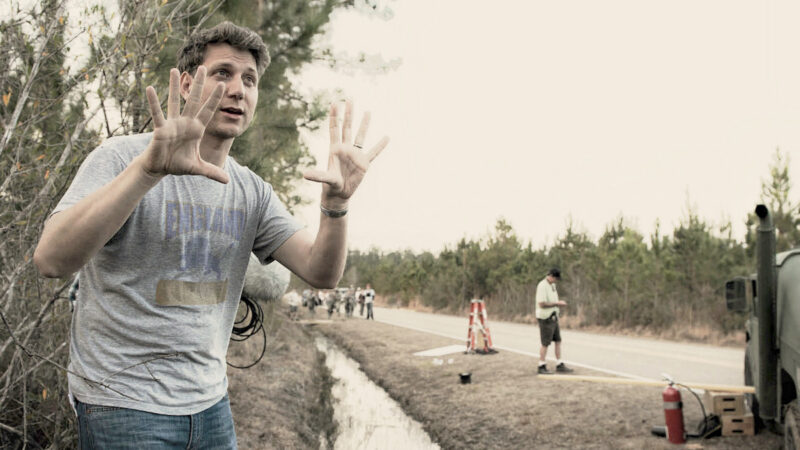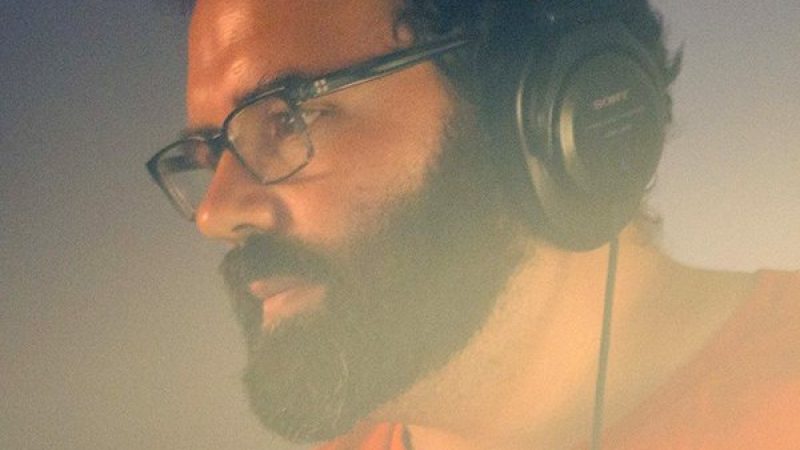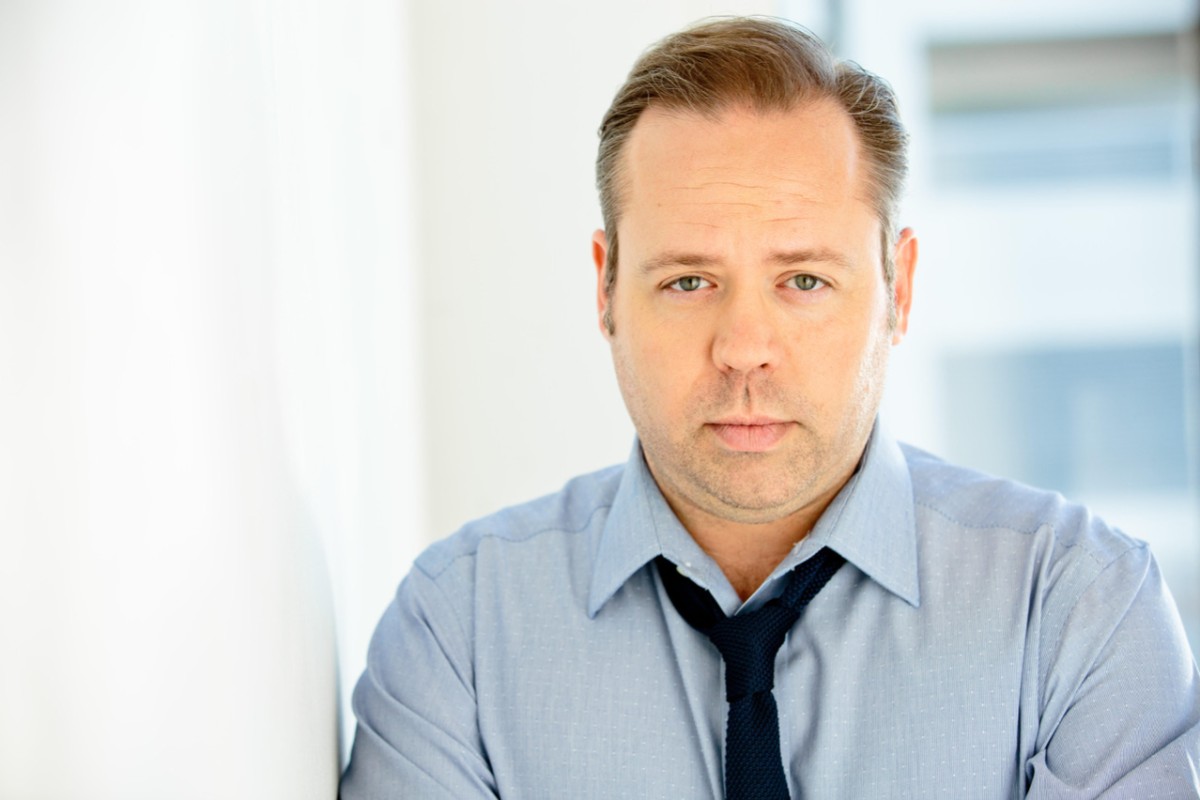
We talk to Daved Wilkins who plays Scott in Last Call and doubles as co-writer, and co-producer for the film. Daved drives us through this process as a collaborator with Sarah Booth (Beth) and the relationship they created on screen that delivered a triumph for independent filmmaking.
My grandmother was a silent film star as a little kid so I grew up hearing stories about the movie business. It took me a while to be comfortable performing in front of people but the first time I was on stage at age 11 and made an audience laugh, I was completely hooked. I still battled against nerves and the fear of rejection so it wouldn’t be until after high school that I auditioned for my first professional theatre production and even that led to a period of time where I “tried everything else” including going to college for business and selling cars and mortgages.
It wasn’t until my wife encouraged me to quit my job and give acting a real shot that I finally accepted mine. I’m a performer. A storyteller. A filmmaker. The path I’ve taken has had a lot of detours and rest areas along the way but all of those things shaped me into who I am and so I can’t regret any choice I’ve made from that first laugh on stage until now because this was my journey and it’s the only way I could have gotten here.
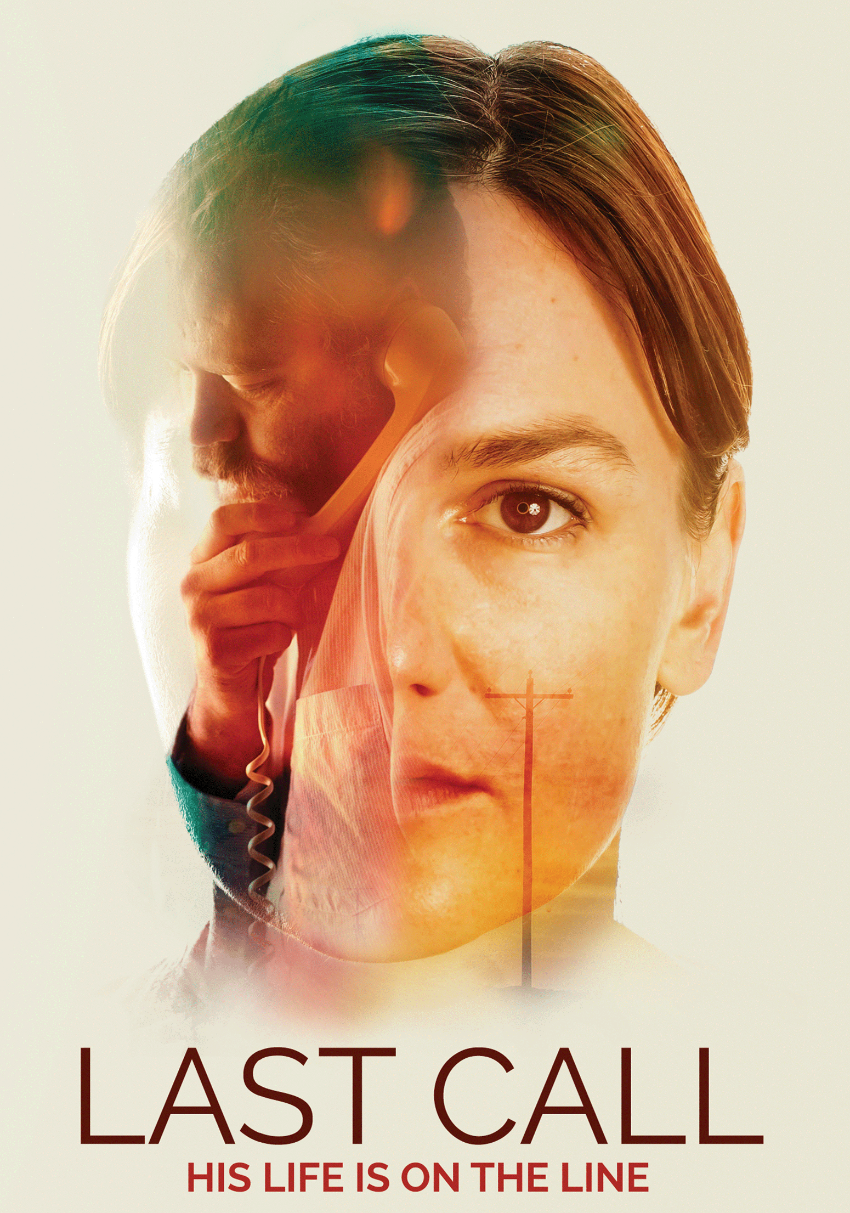
indieactivity: How did you get involved with the LAST CALL?
Daved Wilkins (DW): My dear friend Katie Featherston is the reason this story exists. She was finishing her training to volunteer for the crisis hotline in LA and talked about what it felt like to talk to a stranger who no longer wanted to be alive. That struck me as such a raw and basic human interaction that I wanted to explore. The trouble is, how do you make an hour-plus-long phone call visually interesting for an audience?
I had recently worked with Gavin on a single-take music video and knew that was a style he was not only familiar with but loved to challenge himself with, so I knew it would be shot in a single take. The other obstacle is how do you show two people on the phone in a single take? Gavin had told me about a script he wrote that would be shown in four quadrants on the screen like the Figgis film Timecode so I figured that combining these two unique filmmaking approaches would give us our best chance at telling a thoughtful and engaging story about two strangers on the phone.
Did you start writing with a cast (you or anyone else) in mind?
Daved Wilkins (DW): I knew this was a role I wanted to tackle. That was always the intention. It doesn’t mean I didn’t have doubts or try and talk myself and Gavin into casting another actor, but I think that’s a fairly common thing for me, the self-doubt. It’s a wonder I accomplish anything. I’m getting better at believing in myself though. Or at least that’s what my therapist tells me.
Official Trailer for LAST CALL written/directed by Gavin Michael Booth, stars Sarah Booth & Daved Wilkins
How long did you take to complete the script? (Do you have a writing process?)
Daved Wilkins (DW): From the inception of the idea to the first day of filming was around 18 months. Not all of that time was spent writing of course and the script went through several iterations during that period of tie including a pretty massive rewrite just 36 hours before we rolled the camera on our first take.
You co-wrote the film with the director, Gavin Michael Booth. What was the collaboration process like working with him?
Daved Wilkins (DW): Gavin and I have very different writing styles so there was an adjustment period for sure, but once we started to understand each other’s process and “language” for lack of a better word, it all started to come together. We found the writing software WriterDuet which allowed us to collaborate easily even when we were in different states or even countries as was the case a number of times.
As an Actor, Writer, Producer you wore many hats on this film – do you have a favorite role and why?
DW: I love hats both literally and metaphorically. It’s hard to say if one is my favorite though since it depends on the day and my mood and the circumstances. The role of producer is definitely the more challenging role in the sense that it starts before the script is written and then it never really ends. As an actor, your job is done when they call cut. As a writer, your job is done when the film is shot and picture locked, but as a producer, you are still putting out fires and navigating post-production and distribution and, Lord willing, the finances of the film. Producing is hard work. At the end of the day I what to be remembered as a storyteller, so I will wear any hat necessary to make sure I am always telling great stories.
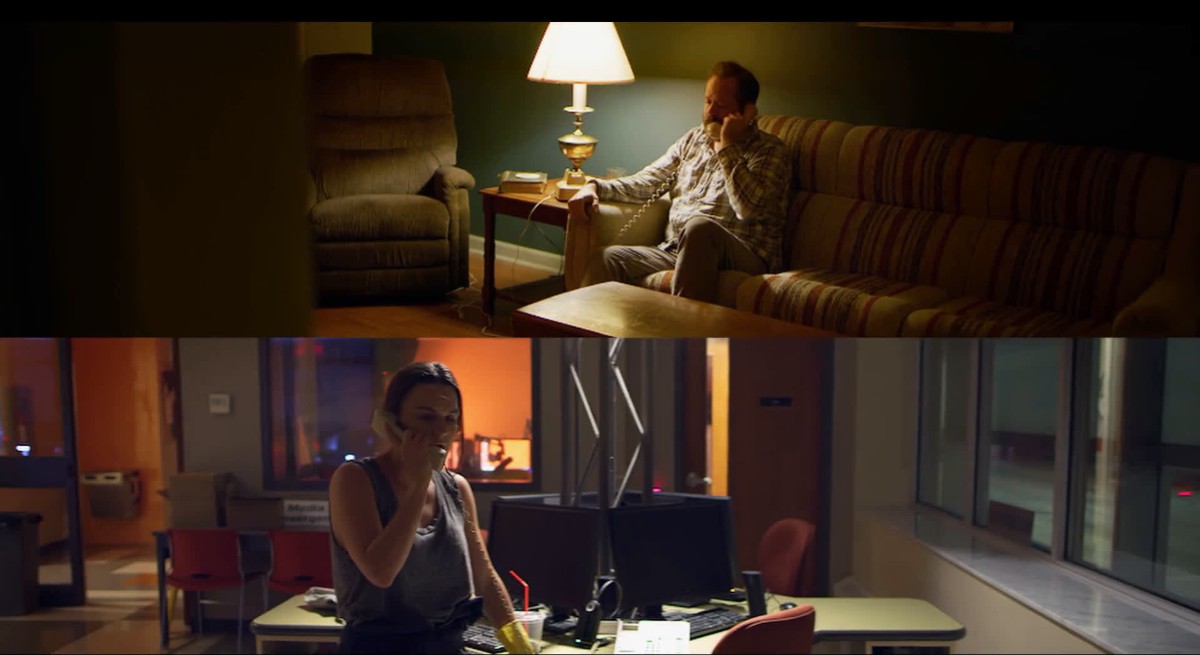
What acting technique(s) do you typically use?
DW: I was never formally trained as an enactor. When I moved to Los Angeles in 2010 I started taking classes with a number of teachers and coaches around the city. Everyone had their own approach. The closest I could say I got to studying a style was taking a class with the phenomenal casting director Deborah Aquila who teaches a very Stella Adler-based approach. Her class also made me a much better writer as she is the master of breaking down a script.
How did you prepare for your role?
DW: Having spent so much time researching and developing the story and writing and re-writing the script, I had months of character breakdown to pull from as an actor. It was always important to me to tell an honest story about mental health and loss and addiction and I hope that comes through in my performance as much as it does in the writing
How did you bring the character from the script to life?
DW: We were fortunate to be able to rehearse on location for 10 days leading up to filming so I was able to spend a lot of time in the space that was Scott’s apartment. I knew where things were, I could maneuver around the space with my eyes closed, I was comfortable. That really allowed me to let the emotional discomfort that Scott was dealing with come through without distraction.
Explain one creative choice you made on the set of this production?
DW: Scott has trouble letting go of things, emotionally. I allowed to inform a lot of the physicality of the character, always holding on to something, be it a bottle, a glass, the phone, the counter. Sometimes I would grip onto things so tightly my fingers would turn white. It wasn’t always visible on camera but it helped me stay grounded.
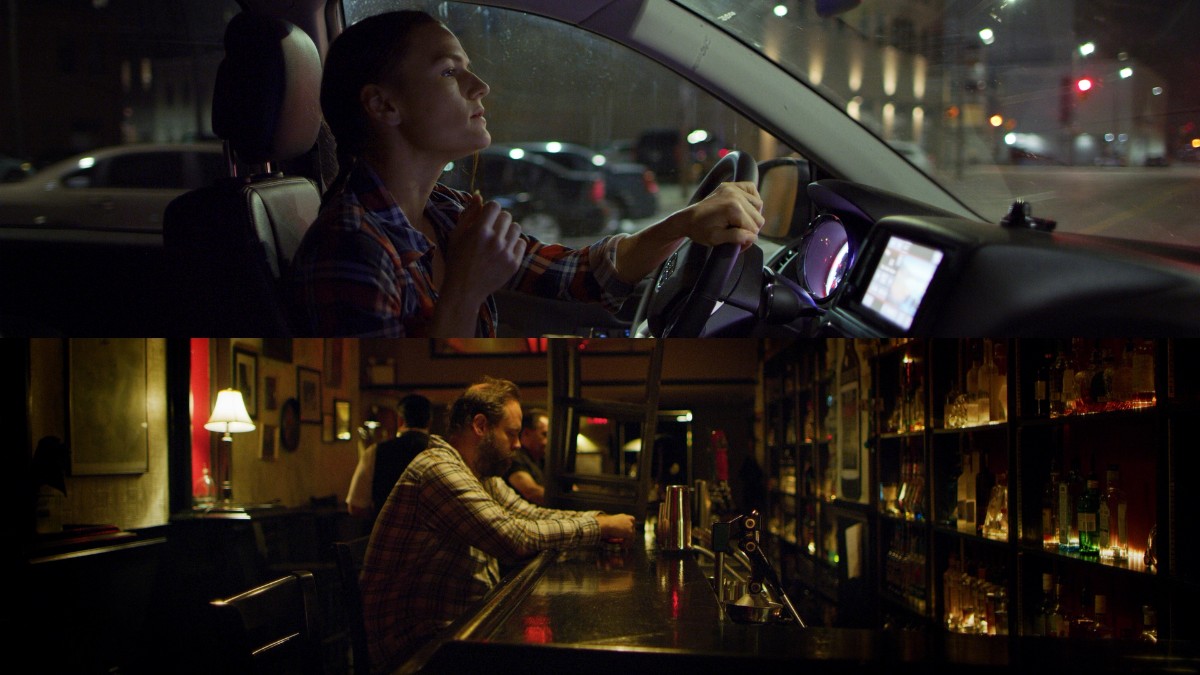
How did you collaborate with Sarah Booth from scene to scene?
DW: Trust. I trusted her, she trusted me, and we both trusted that the story we were telling was important and necessary and could only be told the way we were telling it. If I got tripped up I knew she would catch me, and she knew that if we got off track somewhere that I would help us find our way back. It gave us the chance to play and really explore these characters to their full extent. Plus, Sarah is an unbelievably talented actress and she set the bar so high that I had no choice but to give it my all just to try and rise to her level. She’s a star.
What do you enjoy specifically about independent filmmaking?
DW: The fact that there is nothing
As one of two leading roles in the film, describe the feeling of responsibility that you shouldered. Were you nervous? Or did it fire you up? What scene(s) did you find most difficult to shoot?
DW: I was extremely nervous but I was also surrounded by an incredible group of people who believed in the story we were telling as well as my ability to tell it. I knew that Sarah was going to stay present and I also knew that the most important thing was to always listen. We didn’t have facial cues or any way to communicate between locations during the takes so it was really just her voice that I had to pull from.
What did you take away from this production? What do you hope audiences will take away after watching?
DW: I hope that people will be able to see the struggle that Scott is going through and use this story as a conversation starter for a subject that is just now coming into the mainstream as a topic that we can and must discuss. Battling mental health struggles, grief, and addiction can make us feel alone and unloved and unworthy, and I want people to see this movie and realize that all it takes is a willingness to listen and to care about another person to give them that little glimpse of hope.
After your experience making Last Call, is there any advice you would give other writers/ actors/producers regarding what you learned on the project?
DW: You will learn more from simply doing than you could ever hope to get from reading books or attending lectures. Write your script. Shoot your film. Produce your project. When you’re done you will know what works and what doesn’t but more importantly, you will have learned that you can do it. And that is all it takes. That and a whole lot of luck.
What is next for you?
DW: I am currently developing several projects, including a mockumentary about a minor league baseball team, but I am working towards directing my first feature. It’s a film that I wrote about the importance of faith and the power we all have to help each other heal.
Tell us what you think of the interview with Daved Wilkins. What do you think of it? What ideas did you get? Do you have any suggestions? Or did it help you? Let’s have your comments below and/or on Facebook or Instagram! Or join me on Twitter.
Follow Daved Wilkins on Social Media
Website
IMDb
Facebook
Twitter
Instagram
YouTube
MORE STORIES FOR YOU
The Key Facts Behind How Jeff Nichols Made The Indie Hit MUD
Jeff Nichols gives himself directorial challenges to master on every project.
In Conversation with Michael Oblowitz Director of Confidential Informant
Confidential Informant stars Mel Gibson, Dominic Purcell, and Kate Bosworth

